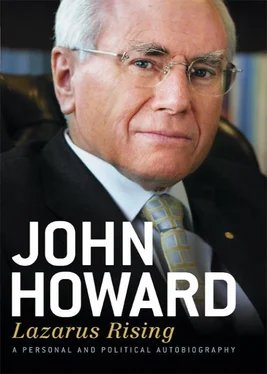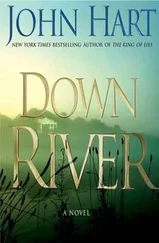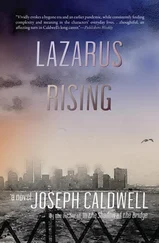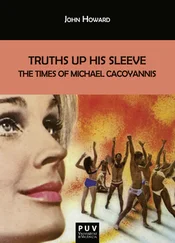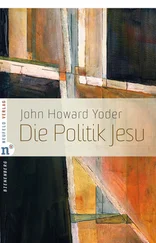1988 was significant for the heavy defeats inflicted by the Liberal Party or Coalition whenever there was an electoral contest. Yet in overall terms, the Coalition still finished the year without clear political dominance over the Government. This was because it proved impossible for me to break completely free of doubts regarding my leadership tenure.
There were four by-elections federally. On 6 February Michael Pratt won the seat of Adelaide from Labor, with a two-party-preferred swing of 8.5 per cent. The following month there was a 9 per cent two-party swing to the opposition in the safe Labor seat of Port Adelaide. On 9 April, the conservative voters of Queensland in the Darling Downs electorate of Groom showed what they thought of the antics of the Queensland National Party the previous year. The Liberal Party captured the seat with a 21 per cent swing in its favour away from the Nationals. There was a solid 5.2 per cent drift from Labor. In October of the same year in the seat of Oxley, vacated by the newly appointed Governor-General, Bill Hayden, there was an 11 per cent primary swing against the Labor Party, although it retained the seat. It would take the disendorsed Liberal Pauline Hanson, in 1996, to claim this Labor stronghold from the ALP.
On top of the federal swings there was the Liberal victory in New South Wales, with Nick Greiner ending almost 12 years of Labor Party government.
With Andrew Peacock and me working together, the new leadership flash-point became John Elliott. He had become the federal president of the Liberal Party just after the 1987 election and immediately set about making plenty of statements on policy matters. This was difficult for me and indeed for Andrew Peacock as most of the statements Elliott made were about economics. He regularly advocated the introduction of a broad-based consumption tax. That was something that had never been completely taken off the table, but the timing and political handling of it was entirely a matter for me and the parliamentary leadership.
Media interest in Elliott was huge. He was a boisterous, larger-than-life character, and there was a naïve, even childish, belief within some journalistic and business circles that what the country needed was a key business figure to have a ‘sabbatical from the boardroom', go into parliament for a couple of terms, fix the country and then return to business. To these simplistic souls, it was all as easy as that. The two people who fitted this bill and who were most frequently touted were John Elliott and Ian McLachlan. The interface between business and politics is both frequent and very important. Understanding business is a crucial ingredient to being a successful politician in government, particularly at a senior level. Likewise a pragmatic understanding of the political process will always serve a businessman well. My experience, however, has been that an easy exchange from business life to the political and vice versa is often elusive. Understanding another’s craft is one thing; practising it successfully is something entirely different.
None of these considerations in any way inhibited John Elliott and his backers, either inside or outside parliament. They saw him as the answer. I was regarded as shop-soiled and ‘too political'. I may have had good policy ideas, most of which Elliott agreed with, but I had no ‘charisma'. Andrew Peacock, on the other hand, had urbane communication skills but was seen as a policy lightweight. Elliott was the natural alternative, as he could boast both success and high profile. Whenever he made speeches they attracted enormous publicity and plainly stated slogans gained wide coverage. The fact that he appeared to have a lot of money also did not escape attention. Ironically, given the outcome of the election, the Liberal Party had ended the 1987 campaign with a surplus. During the last two weeks of the campaign our fortunes had improved sharply, and applying the age-old insurance principle, a number of business donors had come good right at the end when, regrettably, their donations could not be prudently spent. So John Elliott began his presidency of the Liberal Party by investing heavily in staff recruitment and other activities designed to build the organisation. This endeared him to many at Menzies House, the Canberra headquarters of the party.
In the public’s eye the Howard–Peacock rivalry was replaced by the Elliott–Howard rivalry. Elliott and I had a difficult, and quite public, standoff at the federal council meeting in April 1988. Miraculously this difficulty was overshadowed by the emphatic victory achieved by Bill Taylor, the Liberal candidate in Groom, on the Saturday of the federal council meeting.
In July of 1988 I visited Israel, Italy and Britain. In London I saw the British Prime Minister Margaret Thatcher, who had reached the zenith of her power and influence among centre-right adherents around the world. There was great value in the visit for me. I returned to Australia via the west in order to address the state conference of the WA division of the Liberal Party at Esperance. It was here that I made the first of my ‘One Australia’ speeches.
For some time I had been ruminating about the policy of multiculturalism. Inaugurated by Whitlam, embellished by Fraser, continued by Hawke, it was a policy with which I had never felt comfortable. Leaving aside for a moment the separate issue of the White Australia policy, Australia’s post-World War II immigration policy had been built on the principle of assimilation. We would draw people from many countries, but when they came here they would become Australians. They would be assimilated into the host culture; they were then called New Australians.
That was a term with which I had grown up, and which I had always imagined accurately described the process. They were to become Australians and were new to our country; hence the term seemed to me to make good sense. I never believed that people who used the term did so in a patronising or offensive fashion. As time passed, however, and subsequent generations were born in Australia to those original ‘New’ Australians, the term was no longer appropriate.
Sensing the political power of individual ethnic groups, Whitlam embraced multiculturalism. There was to be more emphasis under the policy of multiculturalism on the individual characteristics of different ethnic groups. Assimilation was discarded as a term, it being described as too patronising and Anglo-Celtic-centric. It was one of those areas where nuance and degrees of emphasis mattered a lot. If multiculturalism simply meant that there should be a greater emphasis on honouring the culture and land of one’s birth, then nobody could possibly object. By contrast, if it meant entrenching differences of culture without acknowledging the mainstream character of the host culture, then more difficult considerations were raised.
My view was that Australia should emphasise the common characteristics of the Australian identity. We should emphasise our unifying points rather than our areas of difference. I extended this thinking to our approach to Indigenous policy issues, where I disagreed with Bob Hawke’s flirtation with the notion of a treaty. These were considerations I had in mind when I gave my speech in Esperance.
At the time of my Esperance speech, there was separate debate in Australia about the pace of Asian immigration. Clearly there were some people totally, and wrongly, opposed to any migration from Asia. There were others who were simply concerned about the speed of change in particular localities. My response to several questions on this issue, during two radio interviews, was to state simply that if it were in the interests of social cohesion to slow the pace of Asian immigration a little then that should occur.
The initial reaction of the public was supportive of what they saw, not as a racial outburst, but a commonsense remark about the rapidity of change. That had been my intention. I should have realised that my political opponents, and critics elsewhere, would seize on the comments and use them to attack me, as introducing racial considerations into debate on Australia’s migration program. Bob Hawke exploited the situation very cleverly by introducing a motion into the parliament declaring that considerations of race should never be used as a criterion to determine flows of immigration to Australia.
Читать дальше
